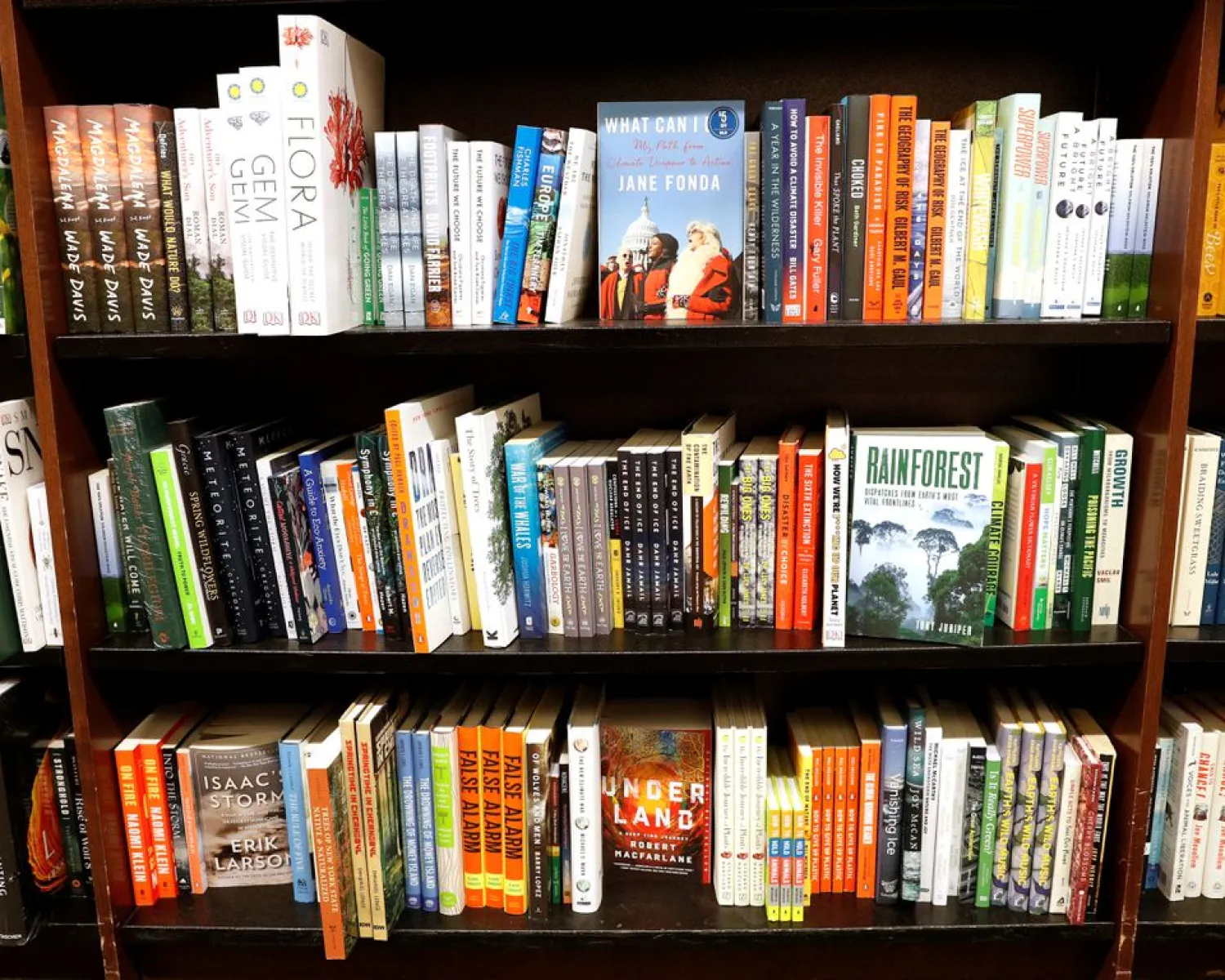The Sheikh Zayed Book Award (SZBA) at the Abu Dhabi Arabic Language Centre (ALC), part of the Department of Culture and Tourism - Abu Dhabi, has announced the shortlisted entries in its Literature, Young Author, and Children’s Literature categories for the 2022 edition, Emirates News Agency (WAM) reported Thursday.
Together the three shortlists consist of nine works from Egypt, Morocco, the UAE, Tunisia, Saudi Arabia and Syria, WAM said.
Selected from a longlist of 15 entries, the shortlist for the Literature category features three works: Ghorbat Al Manazil (Strangers at Home) by novelist Ezzat Elkamhawy (Egypt), published by Al Dar Al Masriah Al Lubnaniah in 2021; Wa Tahmelany Hayraty Wa Dh’anony. Seerat Altakween (Composition Biography: Thoughts and Confusion Carry Me) by critic and academic Said Bengrad (Morocco), published by Le Centre Culturel Du Livre in 2021; and Maq’ha Reesh, Ain Ala Massr (Eye on Egypt: Reesh Café) by Maisoon Saqer (UAE), published by Nahdet Misr Publishing in 2021.
Chosen from a longlist of 14, the three shortlisted works for the Young Author category are: Al Kaa’in al Balaghi al Lugha wal Aaql wal Istita’a fi Kitab ‘Al Bayan wal Tabyeen (Rhetorical Object: Language, Reason, and Ability in the Book ‘Al-Bayan wal-Tabyeen’) by Mustafa Rajwan (Morocco), published by Dar Kunouz Al Maarifa for publication and distribution in 2021; Al Badawa fi al She’er al Arabi al Qadeem (Bedouinism in Ancient Arabic Poetry) by Dr. Mohamed Al-Maztouri (Tunisia), issued by the Faculty of Literature, Arts and Humanities at Manouba University and the GLD Foundation (Al-Atrash Complex for Specialised Books) in 2021; and Al Hikaya al Shaabiya al Saudia al Maktooba bil Fus’ha: Dirasa fi al Muta’aliyat al Nasiya (Saudi Folk Tales Written in Fus’ha: A Study of Textual Transcendence) by Manal Salem Al-Qathami (Saudi Arabia), issued by the Arab Diffusion Foundation in 2021.
In the Children’s Literature category, the three shortlisted entries – selected from a longlist of 10 works – are: Shams Tadhak (A Laughing Sun) by Bayan Al-Safadi (Syria), published by Dar Al Banan in 2020; Loghz al Kora al Zujajiya (The Mystery of the Glass Ball) by Maria Daadoush (Syria), published by Dar Al-Saqi in 2021; and Maw’idi maa al Noor (My Date with the Light) by Raja Mellah (Morocco), published by Al Mu’allif for publishing, printing, and distribution in 2021.
The Young Author category attracted the highest number of entries for the Award this year, with 881 submissions, while the Literature category received 852 submissions, and the Children’s Literature category recorded 236 submissions.
The Sheikh Zayed Book Award will announce the shortlists of its other categories over the coming weeks.









